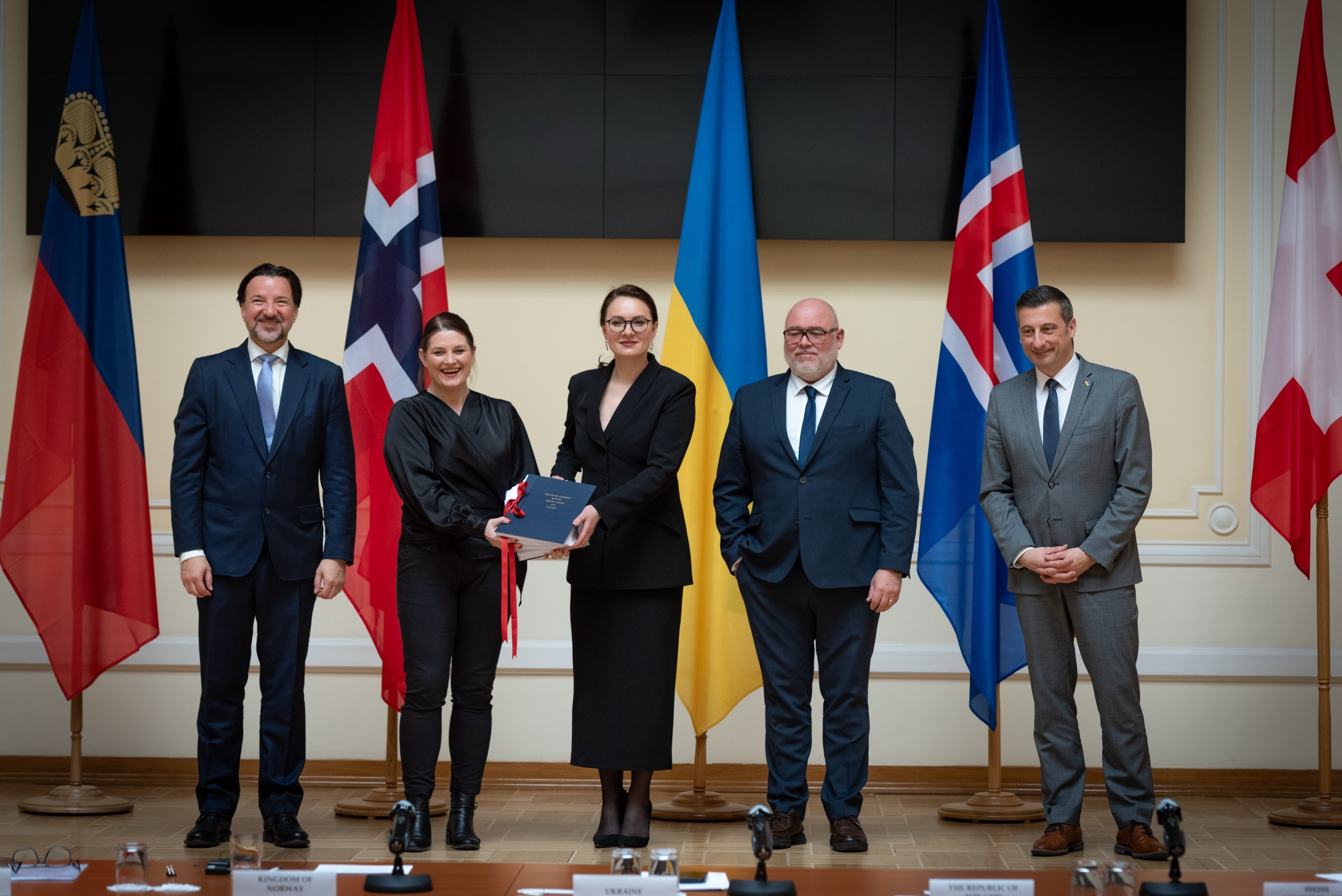The FTA was signed in Kyiv by First Deputy Prime Minister of Ukraine – Minister of Economy of Ukraine Yuliia Svyrydenko, Norway’s Minister of Trade Cecilie Myrseth, Iceland’s Minister of Culture, Innovation and Higher Education Logi Einarsson, Ambassador Frank J. Büchel from Liechtenstein and Federal Council Delegate for Ukraine Jacques Gerber from Switzerland’s State Secretariat for Economic Affairs.
Minister Cecilie Myrseth as EFTA Chair stated the following after the signing:
“The EFTA Member States are committed to supporting Ukraine during a critical time, and this modernised free trade agreement reaffirms this. The new agreement is a stepping-stone in strengthening Ukraine’s integration into the European market.”
Yuliia Svyrydenko, First Deputy Prime Minister of Ukraine – Minister of Economy of Ukraine stated:
“The support Ukraine has received from the EFTA States is invaluable. We are confident that this modernised free trade agreement will bring tangible benefits to Ukraine and the EFTA States by creating conditions for even greater cooperation, opening up new opportunities for businesses and contributing to enhanced living standards of our peoples in these challenging times.”
Background
The modernised FTA includes new chapters on electronic commerce, small and medium-sized enterprises, and trade and sustainable development, as well as revised provisions on trade in goods, sanitary and phytosanitary measures, trade facilitation, government procurement, cooperation and protection of intellectual property. The agreement has also updated market access for goods and liberalised trade in certain product categories. This will deepen trade relations and provide greater market access for businesses on both sides.
Bilateral EFTA–Ukraine merchandise trade reached almost EUR 1.1 billion in 2024. With an average growth rate over the last five years of 4.9% for imports and 9.3% for exports, the trade surplus in favour of the EFTA States has continued to widen. The main imports to the EFTA States were fats and oils (EUR 37 million), precious stones and metals (EUR 26 million), woven apparel or clothing accessories (EUR 22 million), furniture, mattresses and similar furnishing (EUR 20 million), and beverages and spirits (EUR 20 million). The main exports to Ukraine were fish and crustaceans (EUR 229 million), pharmaceutical products (EUR 143 million), arms and ammunitions (EUR 77 million), vehicles (EUR 77 million), and electrical machinery (EUR 44 million).
EFTA-Ukraine Free Trade Agreement
Photos
